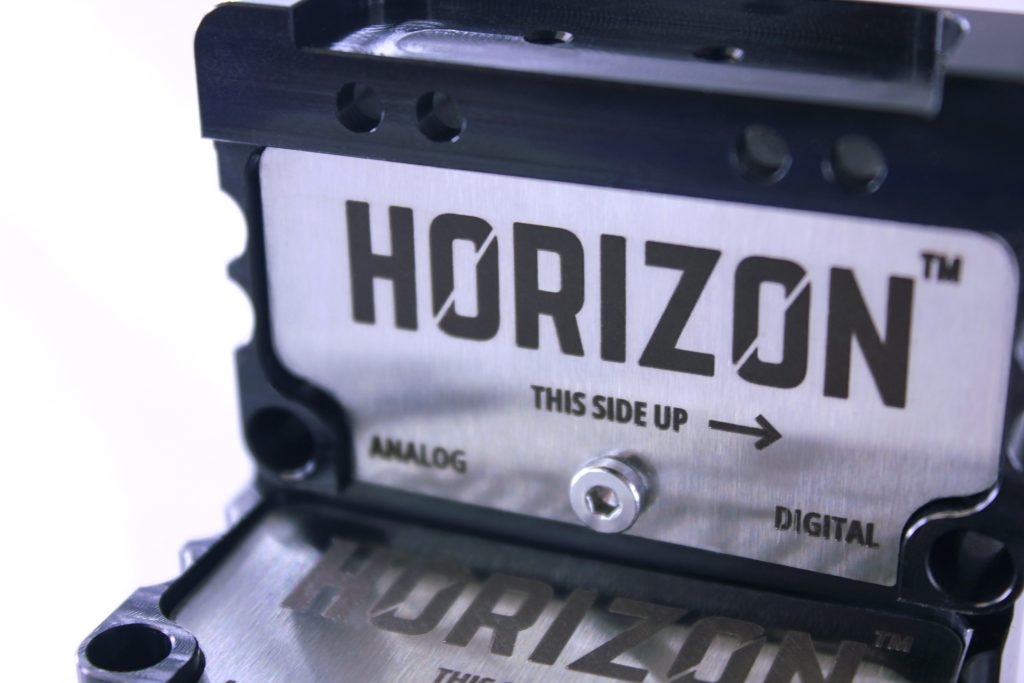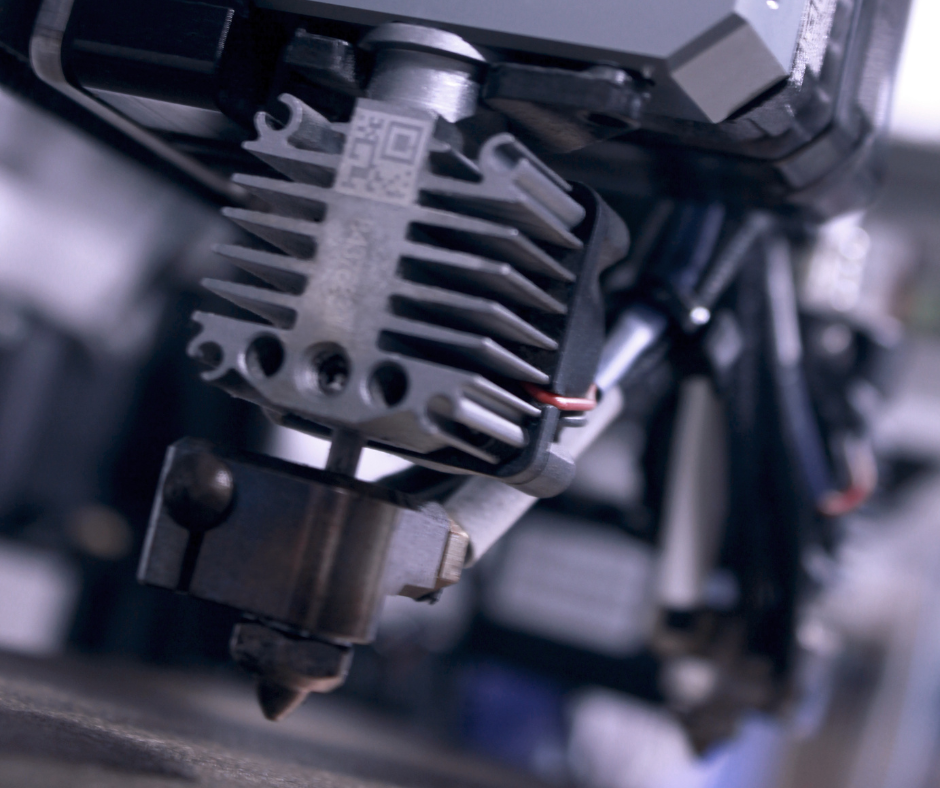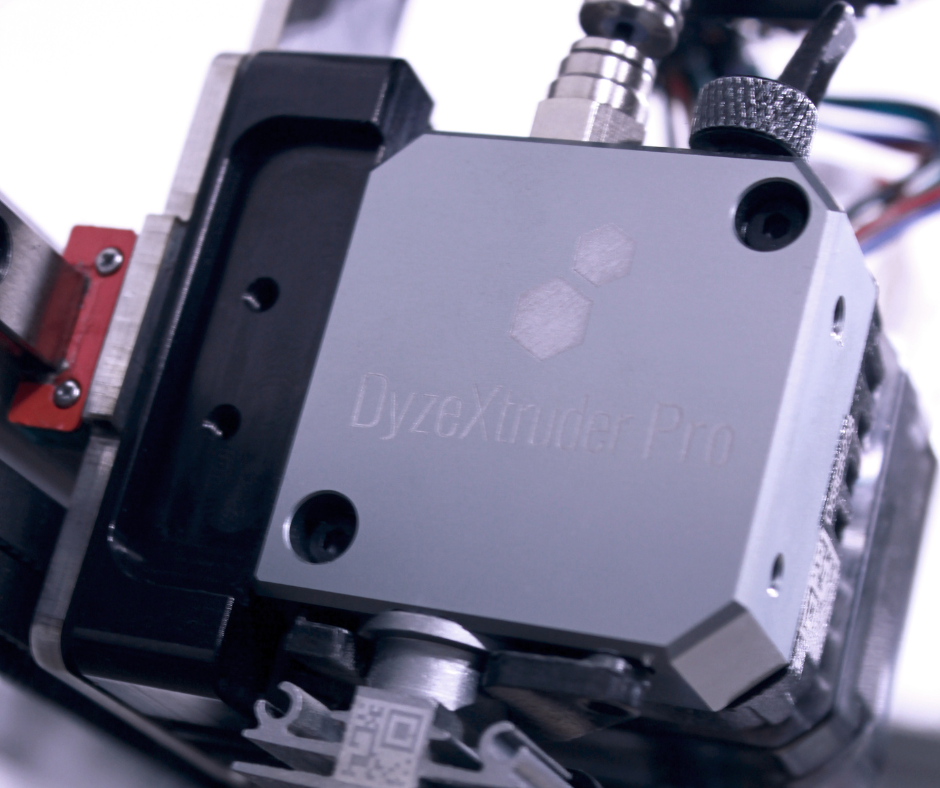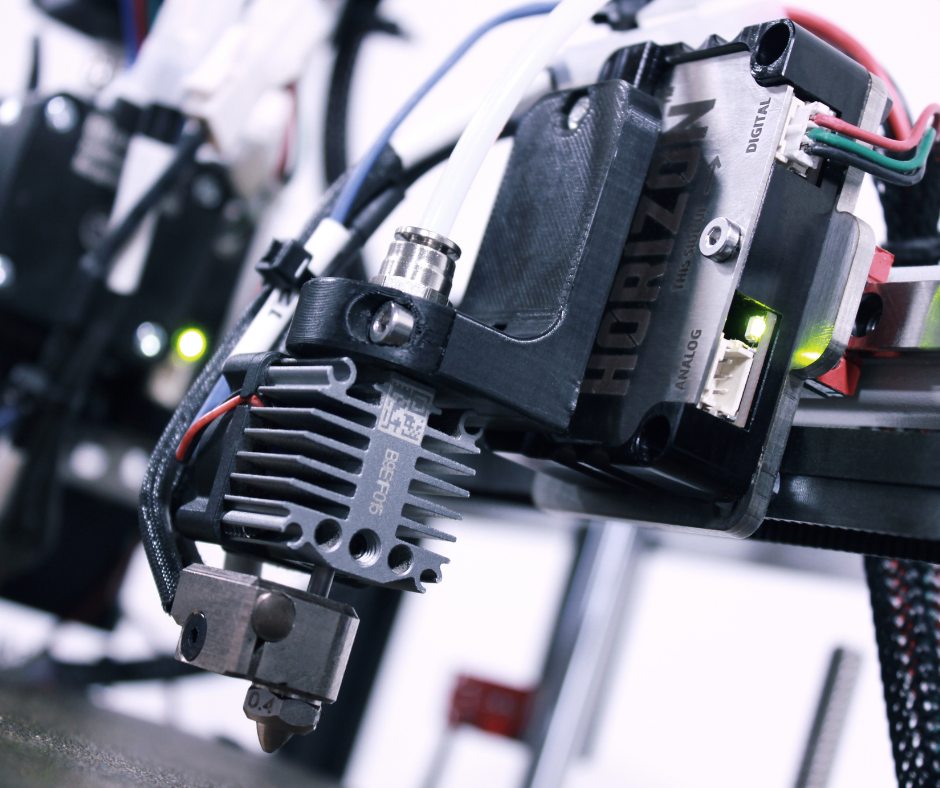Dyze Design, Canadian manufacturer of high-performance extrusion systems and components for professional and industrial 3D printers, has released a new Horizon auto-bed leveling (ABL) sensor and collision detector.
Auto-bed leveling (or tramming) has been a popular feature in modern 3D printing for quite some time. It provides peace of mind when it comes to making sure that the extrusion system is correctly aligned to the build surface, allowing for constant flow and print quality. On top of that, it saves the user time and frustration that can stem from manual bed leveling.

Nowadays, many types of bed leveling sensors can be found on the market, such as capacitive sensors, inductive sensors, or physical-hall sensors (bltouch/3dtouch).
However, these various Z probe technologies come with a few limitations themselves. For instance, inductive sensors only work on metallic surfaces, physical-hall sensors don’t provide great repeatability and are not very reactive, and capacitive sensors need to be recalibrated each time you change your build surface or hotend.
The Horizon, meanwhile, enables users to transform their nozzle into a very sensible force sensor. With this next-generation attachment, the Z motors will be stopped the instant their nozzle touches the bed. This enables very accurate Z-homing of the bed without any risk of damaging the 3D printer. As a multi-faceted upgrade, the Horizon can also be used as a basic Z-axis end-stop switch, or to extend its capabilities into auto-bed leveling via 3D printer firmware logic.

“The Horizon, compared to other types of bed sensors on the market, is based on strain gauge technology, which measures the effect of external forces on an object,” says Simon Duchaine, Chief Commercial Officer at Dyze Design. “Through doing so, it’s not limited by the type of surface you are using and doesn’t need recalibration of the Z-offset each time you modify a part of your printer. And to top it off, because it’s sensing the force applied to it, the Horizon can be used for bed tramming as well as security and collision detection. In fact, your nozzle becomes your Z limit switch and your ABL sensor.”
Horizon also enables the Z-offset to be automatically adjusted. There’s no need to update the firmware again if users somehow change the form factor of their hotend or nozzle. Finally, it’s also possible to level a 3D printer’s bed even when the nozzle is hot. This is because Horizon is built for thermal expansion, with no solid plastics that could disrupt calibration.

The Horizon is mounted right in-between the carriage and the extruder (or the hotend in a bowden setup), so users aren’t losing any space on their X-axis, as they would with most other sensors mounted beside their printheads either.
“It’s worth noting that the Horizon is providing detection in a more precise and repeatable way than any non-contact sensors, and allows more clearance around your extruder because it is mounted directly on the carriage and doesn’t need any calibration after a component change (extruder, hotend, nozzles, bed surface),” adds Duchaine.
Horizon is also compatible with most popular extruders on the market such as the Bondtech BMG, and E3D Titan as well as all common 3D printer firmwares like Marlin, RepRap Firmware and Klipper.
The Horizon is now available for purchase at the price of CA$130. Customers can find out more or buy it online via the Dyze Design website.

To stay up to date with the latest 3D printing news, don’t forget to subscribe to the 3D Printing Industry newsletter or follow us on Twitter or liking our page on Facebook.
While you’re here, why not subscribe to our Youtube channel? featuring discussion, debriefs, video shorts and webinar replays.
Are you looking for a job in the additive manufacturing industry? Visit 3D Printing Jobs for a selection of roles in the industry.
Featured image shows Dyze Design’s Horizon auto-bed leveling (ABL) sensor and collision detector. Photo via Dyze Design.



